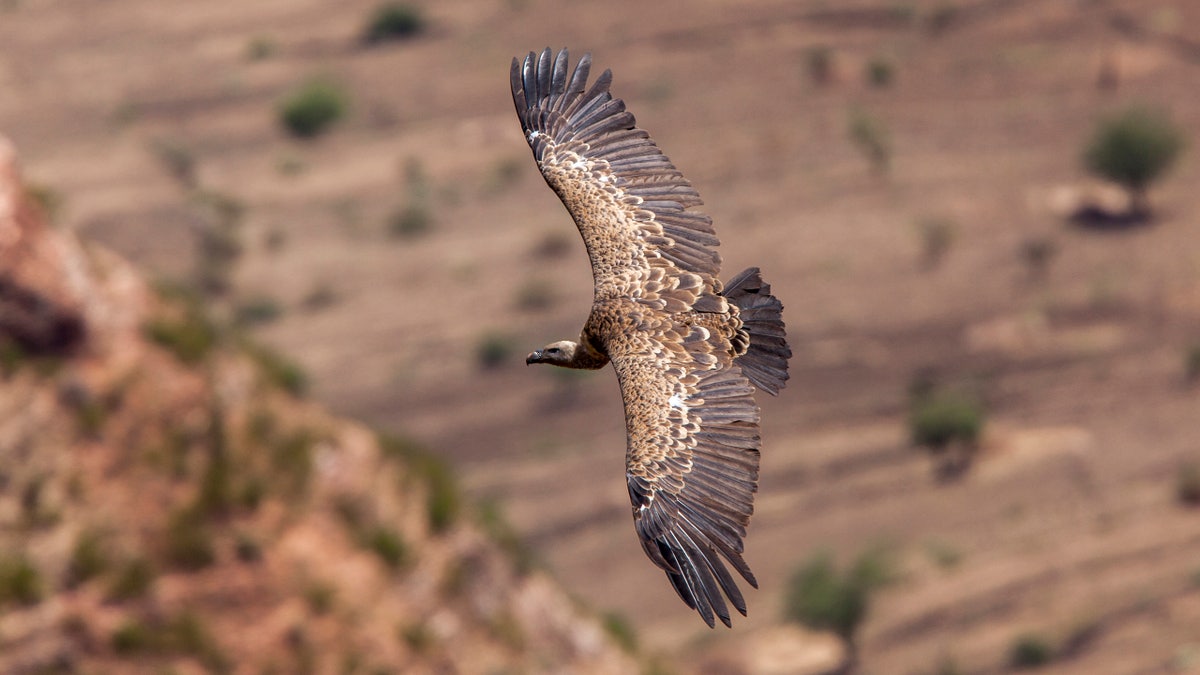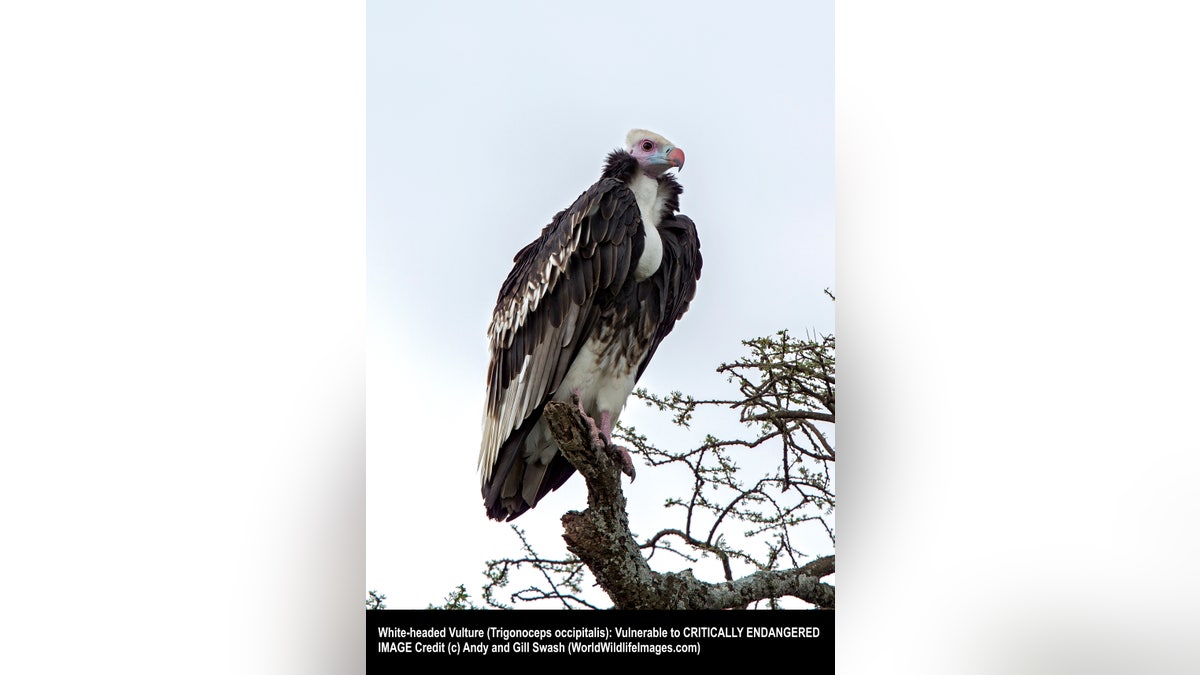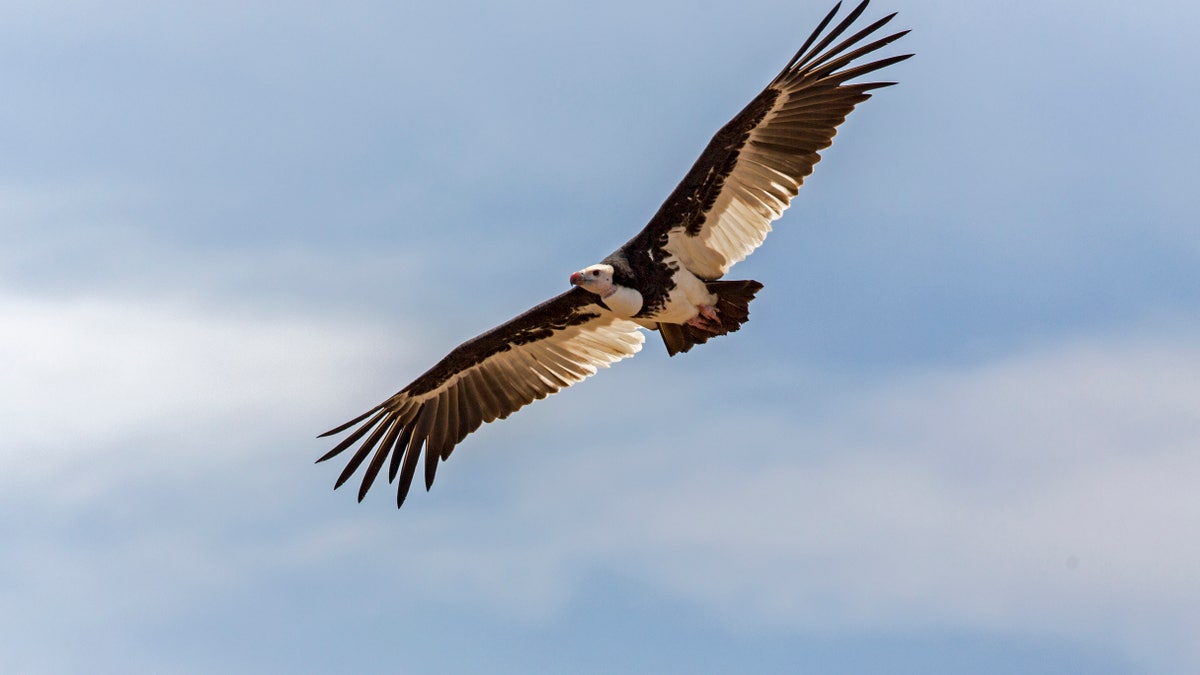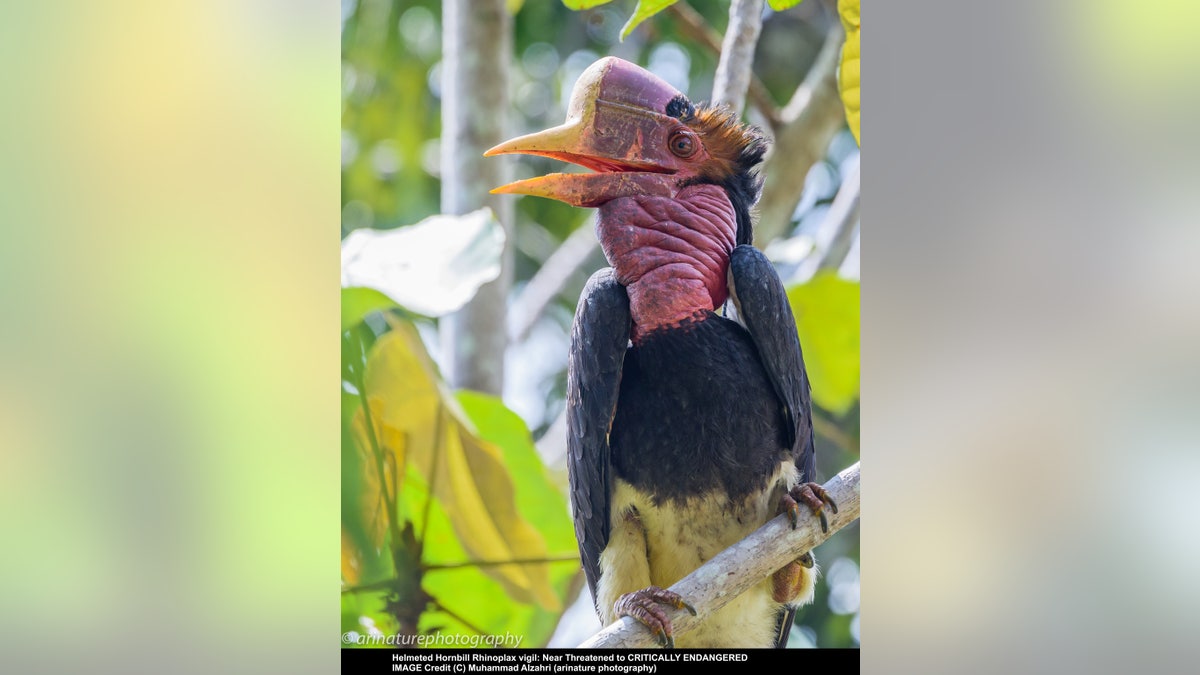
Gyps rueppellii erlangeri, Rueppell's Vulture, Ethiopia (Andy & Gill Swash (WorldWildlifeImages.com))
More than half of Africa’s vultures are facing a growing risk of extinction, due to widespread poisoning and targeting by poachers, according to the International Union for Conservation of Nature.
The troubling state of vultures is part of a growing trend for birds around the world with 24 species in total being classified as having a higher risk of extinction, according to the latest assessment of birds for the IUCN Red List of Threatened Species, which was carried out by BirdLife International.

Trigonoceps occipitalis, White-headed Vulture, Adult, Tanzania (Andy & Gill Swash (WorldWildlifeImages.com))
Of the 11 vultures that patrol the skies in Africa, six saw their status upgraded including four that are now listed as critically endangered. They included the hooded vulture (Necrosyrtes monachus) upgraded from endangered to critically endangered, the whit-backed vulture (Gyps africanus) upgraded from endangered to critically endangered, the white-headed vulture (Trigonoceps occipitalis) upgraded from vulnerable to critically endangered and Rüppell's Vulture (Gyps rueppellii) upgraded from endangered to critically endangered.
Related: Colony of Rare Vultures Found in Cambodia
“As well as robbing the African skies of one of their most iconic and spectacular groups of birds, the rapid decline of the continent’s vultures has profound consequences for its people – as vultures help stop the spread of diseases by cleaning up rotting carcasses,” Julius Arinaitwe, BirdLife International’s Africa Programme Director, said in a statement.

White-headed Vulture (Trigonoceps occipitalis). (Andy & Gill Swash,Andy & Gill Swash, WorldWildlifeImages.com)
“However, now we are becoming aware of the sheer scale of the declines involved, there is still just enough time for conservationists to work with law-makers, faith-based organizations, government agencies and local people, to make sure there is a future for these magnificent scavengers,” he added.
Simon Stuart, chair of the IUCN Species Survival Commission, pointed out that vultures play critical roles in the African ecosystem. Among the ugliest birds on the planet, vultures play nature's garbagemen - helping cleanup carcarasses and prevent the spread of disease.
“Their decline can have serious knock-on effects on other species and the many benefits provided by nature,” Stuart said, in a statement. “While it is encouraging to see some positive outcomes of conservation action, this update is an important wake-up call, showing that urgent efforts need to be taken to protect these species.”
Earlier this year, a study in Conservation Letters documented the dramatic decline of these scavengers across Africa. In their study, an international team found that populations of eight species declined by an average of 62 percent and that seven had declined at a rate of 80 percent or more over three generations.
The African vultures' demise echoes similar troubles for the birds in Asia, where tens of millions of vultures have died as a result of eating cattle and buffalo carcasses containing the painkiller diclofenac. It was also banned for veterinary use in India in 2006 because of its lethal effects but human formulations of the drug have been illegally used to treat animals until recently.
Related: Cattle Medicine Blamed for Deaths of Indian Vultures

Helmeted Hornbill (Rhinoplax vigil). (Muhammad Alzahri)
Worldwide, 40 more bird species are now classified as having a higher risk of extinction in the 2015 Red List. Besides the vultures, these include many wading shorebirds, and other iconic species like helmeted hornbill, swift parrot, Atlantic puffin, and European turtle-dove.
In a bit of good news, 23 species have been downgraded to lower threat categories. In cases of the Seychelles Warbler and Chatham Petrel, their improved status was the result of improved conservation efforts.
